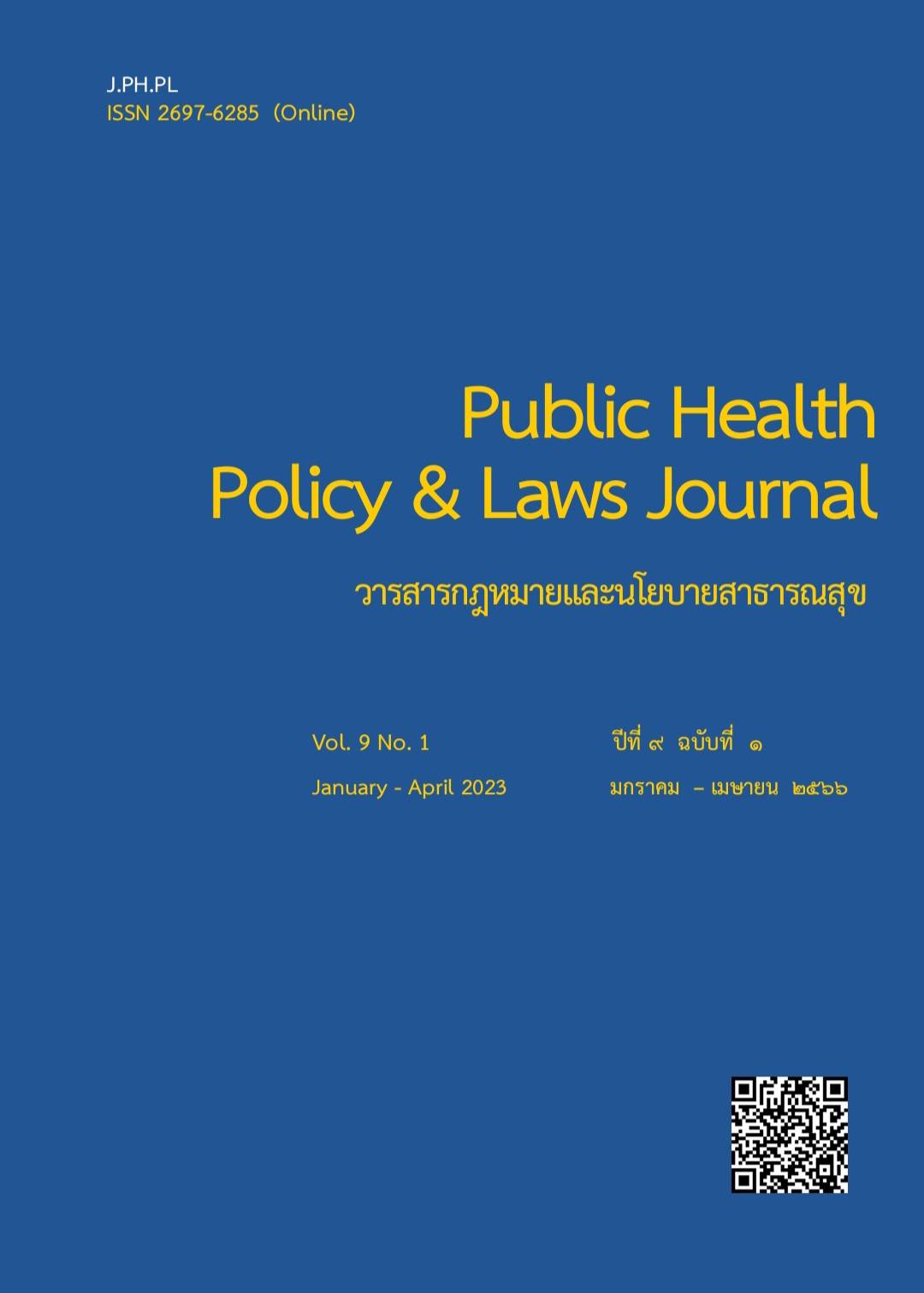Consumer Protection from Online Dietary Supplement Advertising and Sales
Keywords:
Dietary supplements, Advertising, ConsumersAbstract
Currently, the food supplement market in Thailand is expanding both offline and online. However, the problem is that dietary supplements are being advertised with exaggerated claims and false or deceptive statements about their qualities and properties misleading some consumers to believe and consume them to the extent that their health and body are affected. Therefore, in this article, we will touch on legal measures related to online dietary supplement advertising in the UK and Thailand, analyze problems and suggest guidelines for development of such laws in Thailand. It was found that legal measures related to online food supplement advertising in the UK were governed by the Consumer Protection from Unfair Trading Regulations 2008 and the Food Safety Act 1990 under supervision of the Office of Fair Trading, the Food and Drug Administration, and the Advertising Standards Authority. In Thailand, legal measures related to online food supplement advertising are governed by Articles 40 and 41 of the Food Act B.E. 2522 prohibiting advertisements of benefits, qualities or properties of food that are false or deceptive and misleading. The act also stipulates that those who wish to advertise benefits, qualities or properties of food on the radio and television and in videos, movies, newspapers, other publications or any other means for commercial purposes must use approved sound, images, film and text. The author finds the following issues in the Thai laws. There are no private agencies to help supervise advertisements. Legislation used to regulate food advertising under Article 40 is not clear in practice. Therefore, the author proposes that there should be a private organization to supervise advertisements and Article 40 should be amended based on the British law so that it is clearer.
References
เอกสารอ้างอิง
ภาษาไทย
ธีรวัฒน์ จันทรสมบูรณ์. (2564). ขายตรงและตลาดแบบตรง. พิมพ์ครั้งที่ 3. กรุงเทพฯ : นิติธรรม.
นนทวัชร์ นวตระกูลพิสุทธ์. (2563). กฎหมายคุ้มครองผู้บริโภค. พิมพ์ครั้งที่ 2. โครงการตำราและเอกสารประกอบการสอน คณะนิติศาสตร์ มหาวิทยาลัยธรรมศาสตร์.
สถาบันอาหาร. (2558). สืบค้นวันที่ 15 พฤศจิกายน 2565. https://www.nfi.or.th/service-single-page.php?id=301.
สุษม ศุภนิตย์. (2540). คำอธิบายกฎหมายคุ้มครองผู้บริโภค. พิมพ์ครั้งที่ 3. กรุงเทพฯ : สำนักพิมพ์จุฬาลงกรณ์มหาวิทยาลัย.
ภาษาอังกฤษ
Darren Fitzgerald. (1997). Comparative Advertising in the United Kingdom. London : Hart Publishing.
Gordon Borie and Aubrey L. Diamond. (1996). The Consumer, Society and the Law. London : Mac Gibbon&KU.
Finansia. (2018). ธุรกิจสุขภาพ เทรนด์ที่มาแรง. สืบค้นวันที่ 15 พฤศจิกายน 2565. https://www.fnsyrus.
com/uploads/research/211215Specialreport-HealthFocus.pdf.
Suchanya Ponpetch. (2020). Supervising the Advertising of Dietary Supplements on the Internet. Research and Development Health System Journal. May-August. Vol.13 No.2. 624.
Downloads
Published
How to Cite
Issue
Section
License
Disclaimer and Copyright Notice
The content and information presented in articles published in the Journal of Law and Public Health Policy represent the opinions and sole responsibility of the respective authors. The editorial board does not necessarily agree with or assume any responsibility for the views expressed.
All articles, data, content, images, and other materials published in the Journal of Law and Public Health Policy are the intellectual property of the journal. Any individual or organization wishing to reproduce, distribute, or otherwise use the entirety or any part of such materials must provide proper citation.





